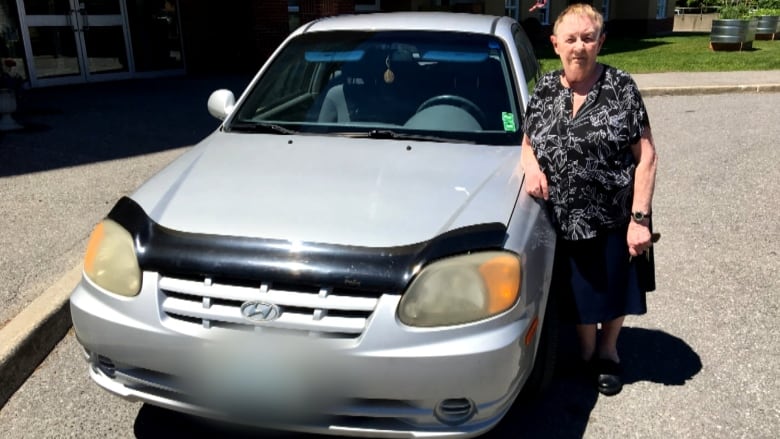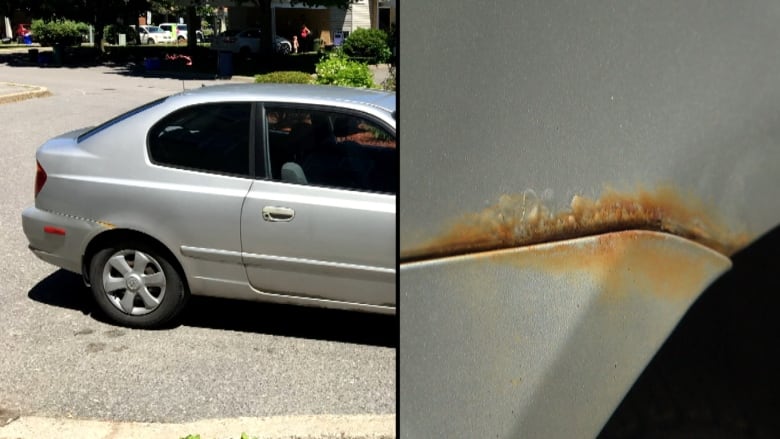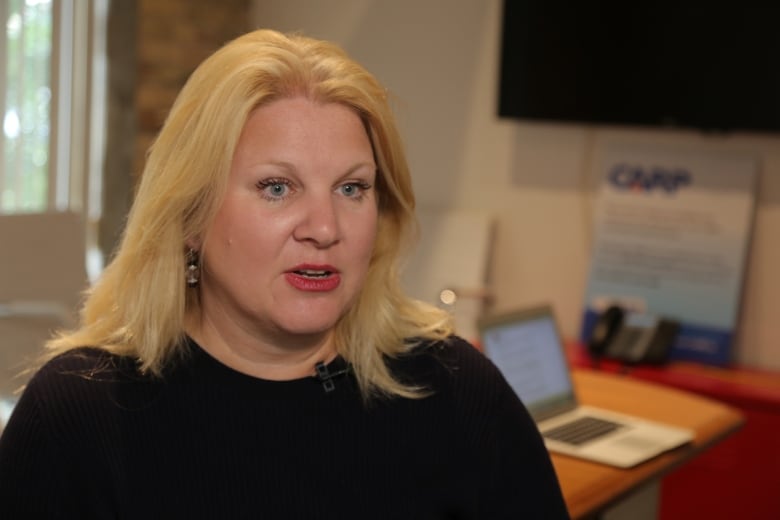Bureaucracy to blame for thousands of Canadians struggling with estate laws, seniors’ advocate says

Widow Margaret McArthur was told she’d have to spend more than her car is worth to change the name on the registration after her husband died. (Marc Robichaud/CBC)
Margaret McArthur, 75, from Ottawa, is like thousands of others who get caught up in a complicated and expensive system where people with few assets can face high legal bills when a loved one dies, according to Laura Tamblyn Watts, the national director of law, policy and research for CARP, formerly the Canadian Association for Retired Persons.
After 56 years of marriage, McArthur’s husband, John, died suddenly in March without leaving a will.

Even though she’s the one who always drove the car, McArthur’s husband’s name was the only one on the ownership, which meant she couldn’t register the vehicle. (Submitted by Carol-Ann Petrie)
“[I thought] if I die he gets it, if he dies, I get it. It’s just automatic,” she said from her home in Ottawa.
Couldn’t even donate car
The 2004 Hyundai Accent GS is worth about $800. McArthur was told by officials she’d have to pay at least $1,500 in legal bills to get the documents needed to transfer ownership from her husband to herself.
McArthur thinks it’s ridiculous to have to spend so much money to transfer ownership of a car that she already paid for and has been driving daily for years. But without transferring ownership, she can’t renew the vehicle’s registration.
“Why don’t they just give me the damn car?” asks McArthur. “What difference does it make? It’s maybe only gonna last another couple of years.”
She even tried donating the car to charity, but was told she couldn’t.
“The Ministry of Transportation said it had to be put in my name before we could donate it. So I can’t even donate it. Can’t sell it. Can’t scrap it.”

McArthur was told she’d need a lawyer to deal with the paperwork to change ownership on the 14-year-old car that’s worth around $800. (Marc Robichaud/CBC)
Soon after her husband’s death, McArthur tried to transfer ownership by providing Service Ontario her husband’s death certificate, their marriage certificate, the insurance slip with her name on it and other documents that showed the couple lived together when John died.
However, Service Ontario and the Ontario Ministry of Transportation told McArthur she’d have to hire a lawyer to get a certificate of appointment of estate trustee without a will — the document she needed to transfer ownership.
The problem
Tamblyn Watts says she sees grieving spouses overwhelmed by the system “on an almost daily basis,” regardless of whether their partners had a will or the size of the estate.

Laura Tamblyn Watts, a spokesperson for CARP, says many older Canadians are overwhelmed by complicated and costly estate rules and regulations. (Doug Huspy/CBC)
Since small estates have few assets, they should have a different set of rules that make them easier and less expensive to settle, she says.
“We want to make sure people are able to effectively and without too much red tape, go through the process at a time when they’re grieving and it’s even more difficult to manage,” says Tamblyn Watts.
Only a few provinces and territories — including Saskatchewan, Manitoba and Northwest Territories — have implemented simpler and less expensive systems for small estates. To use the less complicated rules, an estate can’t be worth more than $10,000 to $35,000 (depending on the jurisdiction).
Watts says it’s “simply not fair,” that only some Canadians have access to simplified systems and wants to see a consistent set of rules across the country.
The Law Commission of Ontario, in McArthur’s home province, has been pushing for reforms for years, saying the cost of probate — which isn’t mandatory but often necessary when there is a will — is “disproportionately high for small estates and can outweigh the benefits.”
The solution
Tamblyn Watts says a lot of people are now looking to avoid going through probate altogether by putting assets in joint names so they aren’t part of a will. But she warns that could lead to problems if the original owner’s rights aren’t respected.
Having a will and an estate plan in place is the best option available, she says, adding situations without a will are almost always more complicated.

McArthur never thought she would need a will since she and her husband John were married for more than five decades. (Submitted by Carol-Ann Petrie)
The resolution
As for McArthur, she says the car is even more important now that she’s a widow. It’s her lifeline to the outside community to visit friends and run errands.
After Go Public contacted Ontario’s Ministry of Transportation, it offered to help McArthur through the process of changing the car’s ownership.
In an email to Go Public, a ministry spokesperson wrote that the legal document McArthur was told she required isn’t always needed to transfer the vehicle to the surviving spouse and that a letter from a lawyer stating McArthur is the beneficiary of the vehicle would do.
“We apologize if the information above was not provided or fully explained to Ms. McArthur when she contacted us earlier,” Bob Nichols said.
McArthur went back to a lawyer, who gave her a discount on the usual $450 cost of writing the letter because of her circumstances. After months of trying, she was finally able to put the car under her own name.
With files from Jenn Blair, Max Paris and Ana Komnenic
Source: CBC News
